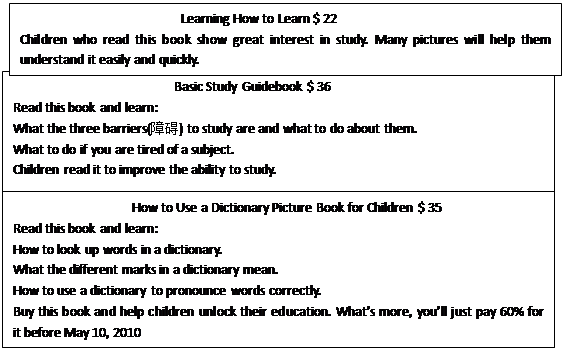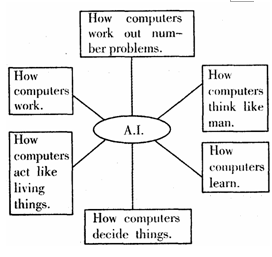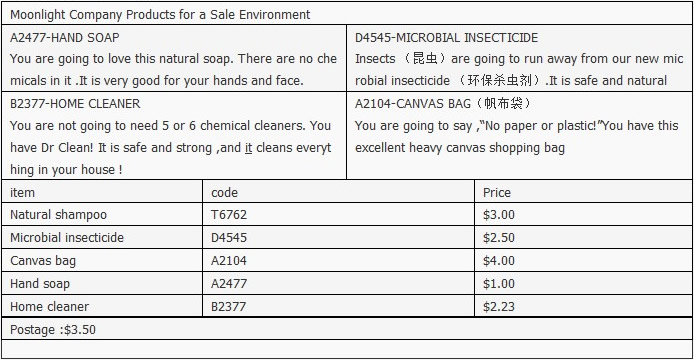 |
根据以上材料,选择最佳答案。
- 1.
“ ”can tell you what to do if you are tired of a subject.
- A.Study Skills for Life
- B.Basic Study Guidebook
- C.HOW to Use a Dictionary Picture Book for Children
- A.
- 2.
Many pictures in the book“Learning How to Learn”can______.
- A.make children read slowly
- B.make children understand the book easily
- C.make the book boring
- A.
- 3.
According to the ads, the three books are for .
- A.the old
- B.parents
- C.children
- A.
 b. She was honored with the Presidential Medal of Freedom.
b. She was honored with the Presidential Medal of Freedom.

